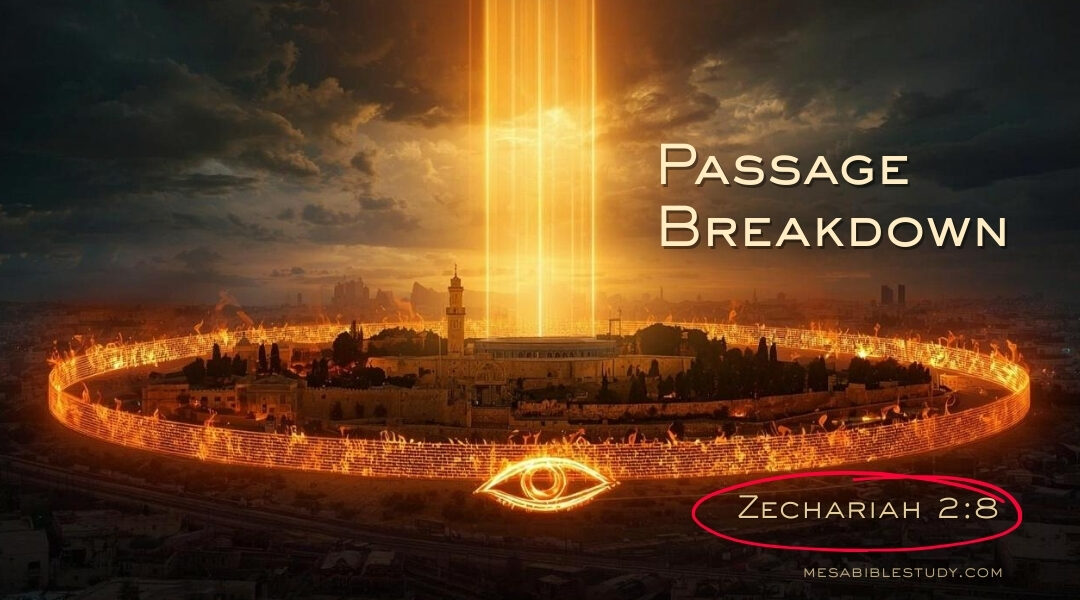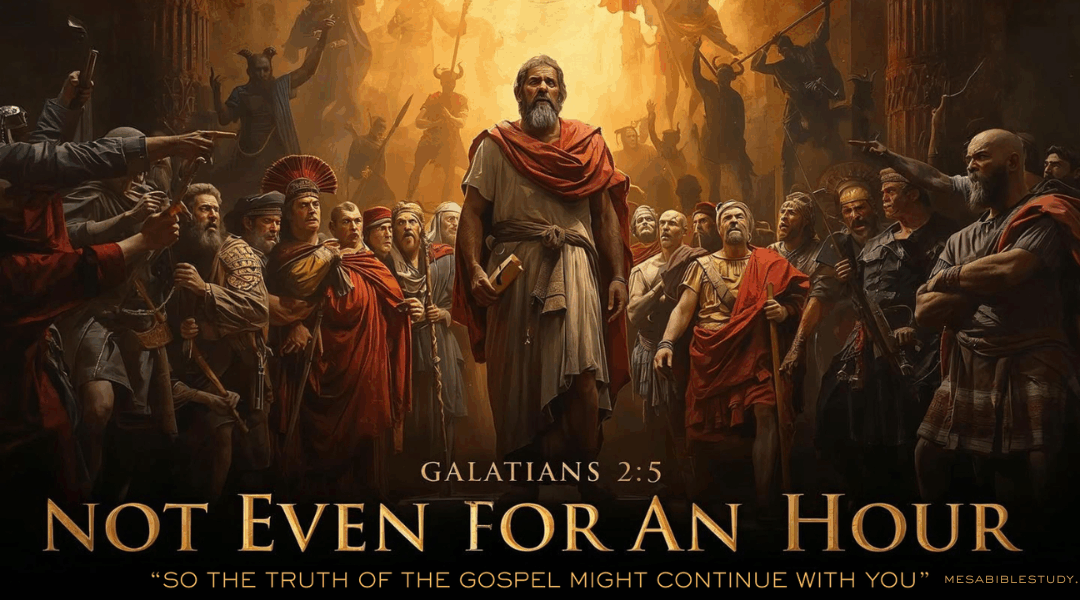
by Jamie Pantastico | Dec 15, 2025 | Devotionals |
Devotional: Life in the Midst of Affliction
Psalm 119:50
“This is my comfort in my affliction,
For Your word has given me life.”
Context & Insight
Psalm 119 is a testimony of deep love for the Word of God, written not from comfort—but from conflict. The psalmist is not denying affliction; he is confessing where his comfort is found within it.
Notice what he does not say:
- He does not say affliction disappeared
- He does not say circumstances improved
- He does not say people changed
Instead, he says God’s Word gave him life while the affliction remained.
Affliction has a way of draining us—emotionally, spiritually, and mentally. Yet the psalmist declares that Scripture did what circumstances could not: it revived him.
This is not poetic exaggeration. It is spiritual reality.
Scripture Interprets Scripture
Romans 15:4
“For whatever things were written before were written for our learning, that we through the patience and comfort of the Scriptures might have hope.”
Paul confirms what the psalmist experienced firsthand:
Scripture was written to sustain believers in suffering.
God did not give us His Word merely to inform us—but to comfort us, strengthen us, and anchor our hope when life presses in.
The Word does not always remove affliction.
But it always provides what affliction cannot take away:
- Perspective
- Endurance
- Hope
- Life
Devotional Reflection
If you are in a season of affliction, this verse is not a command—it is an invitation.
You may not be able to control your circumstances, but you can choose where you seek comfort. And Scripture promises something no earthly solution can guarantee:
Life for the weary soul.
God’s Word reminds us:
- This suffering is not eternal
- God is not absent
- His promises are unchanging
- Hope is still alive
Even when everything else feels fragile, the Word of God remains firm.
Encouragement
If you feel worn down, discouraged, or overwhelmed—open the Scriptures. Not to rush through them, but to let them speak life into you.
The same Word that comforted the psalmist
The same Word that strengthened believers throughout history
Is the same Word God uses today to give you life.
Your affliction may be real—but so is your comfort in Christ.

by Jamie Pantastico | Dec 14, 2025 | Verse-by-Verse Bible Studies |
📖 Passage Breakdown — Matthew 19:17
“So He said to him, ‘Why do you call Me good? No one is good but One, that is, God. But if you want to enter into life, keep the commandments.’”
📬 Reader Request:
This Passage Breakdown comes at the request of a reader who asked how Jesus’ words here fit with salvation by grace. Questions like this are exactly why this series exists.
📜 Background, Setting & Purpose
✍️ Author
Matthew, writing under the inspiration of the Holy Spirit.
👥 Written To
Primarily Israel, presenting Jesus as their Messiah and King.
⏲️ When
During Jesus’ earthly ministry, before the cross, before the resurrection, and before the revelation of the gospel of grace.
🌍 Setting & Purpose of Matthew (book-level)
Matthew presents:
- Jesus as Israel’s promised Messiah
- The offer of the kingdom to Israel
- The Law as still in force
- Israel’s leaders’ growing rejection of Christ
- Jesus teaching within the Mosaic framework
Matthew must be read in its time-frame setting. This is not the Church Age, and the gospel of grace has not yet been revealed.
📖 Immediate Context (Matthew 19:16–26)
A rich young ruler approaches Jesus asking:
“Good Teacher, what good thing shall I do that I may have eternal life?”
This man is:
- Jewish
- Under the Law
- Confident in his own righteousness
- Focused on doing something to inherit life
Jesus does not preach grace to him—He exposes his misunderstanding.
✨ Phrase-by-Phrase Breakdown
“Why do you call Me good?”
Jesus is not denying His deity.
He is confronting the man’s careless use of the word “good.”
The man sees Jesus as a teacher, not as God in the flesh.
Jesus forces him to think:
- Do you understand what “good” means?
- Do you understand who you are talking to?
Either Jesus is truly God—or the man has no right to call Him “good.”
“No one is good but One, that is, God.”
This statement:
- Exposes human self-righteousness
- Aligns with Psalm 14:1–3 and Romans 3:10–12
- Declares absolute moral perfection belongs to God alone
The man believes he is good.
Jesus removes that assumption.
“But if you want to enter into life…”
This is kingdom language, not Paul’s gospel.
“Life” here refers to:
- Participation in the promised kingdom
- Blessing under the Law
- Inheritance tied to obedience
This conversation takes place under the Mosaic covenant.
“…keep the commandments.”
Jesus answers the man on the ground the man chose.
The man asked, “What good thing must I do?”
Jesus says, “Then do the Law—perfectly.”
This is not Jesus teaching salvation by works.
This is Jesus using the Law lawfully (1 Tim 1:8):
- To reveal the impossibility of self-justification
- To expose the man’s lack of true righteousness
- To show that the Law demands total obedience
When pressed further, the man proves he has not truly kept the Law—because the Law requires love for God above all else.
❌ What This Verse Does Not Mean
- Not that salvation is earned by commandment-keeping today.
- Not a contradiction of justification by grace through faith.
- Not instructions for the Body of Christ.
- Not proof that Jesus denied His deity.
Reading this verse apart from its setting produces confusion.
✅ What It Does Mean
- Jesus meets the man where he is—under the Law.
- Jesus exposes the impossibility of self-righteousness.
- The Law is shown to condemn, not save.
- The man’s problem is not wealth—it is unbelief and misplaced trust.
- This encounter prepares the way for the later revelation of grace.
Jesus does not lower the standard—He raises it to perfection.
🔗 Cross-References for Going Deeper
Ps 14:1–3 — None are good.
Rom 3:10–20 — The Law condemns all.
Gal 3:10 — The curse of the Law.
Luke 18:18–27 — Parallel account.
1 Tim 1:8 — The lawful use of the Law.
Rom 10:4 — Christ is the end of the Law for righteousness.
🙏 Devotional Summary
Matthew 19:17 is not a denial of grace—it is a demonstration of why grace is necessary. Jesus does not offer shortcuts or softened standards. He exposes the heart and shows that eternal life cannot be earned by human goodness. The Law reveals our failure; Christ reveals God’s mercy. Only when self-confidence dies can faith in Christ truly begin.

by Jamie Pantastico | Dec 14, 2025 | Verse-by-Verse Bible Studies |
📖 Passage Breakdown — Zechariah 2:8
“For thus says the LORD of hosts: ‘He sent Me after glory, to the nations which plunder you; for he who touches you touches the apple of His eye.’”
📜 Background, Setting & Purpose
✍️ Author
Zechariah, a post-exilic prophet and contemporary of Haggai, raised up by God to encourage the returned remnant of Israel.
👥 Written To
The Jewish remnant that had returned to the land after the Babylonian captivity, as well as the surrounding nations who opposed and oppressed Israel.
⏲️ When
Around 520 B.C., during the rebuilding of the Temple under Zerubbabel.
🌍 Setting & Purpose of Zechariah (book-level)
Zechariah contains:
- Encouragement for Israel’s rebuilding efforts
- Visions revealing God’s protection of Jerusalem
- Prophecies of Israel’s future glory
- Clear Messianic revelations
- Judgment upon the nations who oppose Israel
The book moves beyond the immediate return from Babylon and looks ahead to Israel’s ultimate restoration and the Messianic Kingdom.
📖 Chapter 2 Focus
Zechariah 2 centers on:
- Jerusalem’s future expansion
- God Himself being a “wall of fire” around her
- The presence of the LORD dwelling in Zion
- Judgment on nations that have plundered Israel
Verse 8 explains why God will judge those nations: because Israel is precious to Him.
✨ Phrase-by-Phrase Breakdown
“For thus says the LORD of hosts…”
This is divine authority.
“LORD of hosts” emphasizes:
- God’s sovereign command over angelic armies
- His authority over nations, kings, and empires
- His ability to defend Israel completely
This is not sentiment—it is power.
“…He sent Me after glory…”
This is a profound and often overlooked statement.
- The speaker is the LORD
- Yet He says, “He sent Me”
This indicates distinction within the Godhead—the Father sending the Son.
“After glory” points to:
- God’s honor being displayed
- Israel’s restoration resulting in God’s glory
- Judgment on Israel’s enemies magnifying God’s name
Many see here a pre-incarnate reference to the Messiah acting on behalf of Israel.
“…to the nations which plunder you…”
The nations are not neutral observers—they are accountable.
God allows discipline, but He judges abuse.
Cross-refs:
Isa 10:5–7 — Assyria used by God, then judged.
Joel 3:2 — Nations judged for scattering Israel.
God distinguishes between His discipline of Israel and the sinful cruelty of the nations.
“…for he who touches you…”
“Touches” implies harm, hostility, aggression—not mere contact.
This includes:
- Physical violence
- Oppression
- Plunder
- Persecution
- Antisemitism
God takes action against those who raise their hand against Israel.
“…touches the apple of His eye.”
A powerful expression of intimate protection.
“Apple of His eye” = the pupil—the most sensitive, guarded part.
This phrase declares:
- Israel is deeply treasured
- Israel is fiercely protected
- Harm to Israel is personal to God
Cross-refs:
Deut 32:10 — God guarded Israel as the apple of His eye.
Ps 17:8 — “Keep me as the apple of Your eye.”
This is covenant language, not symbolism.
❌ What This Verse Does Not Mean
- Not that Israel is sinless or above discipline.
- Not that nations cannot criticize Israel politically.
- Not a metaphor transferred to the Church.
- Not poetic exaggeration with no future fulfillment.
✅ What It Does Mean
- God personally defends Israel.
- The nations are accountable for how they treat the Jewish people.
- Antisemitism provokes divine judgment.
- God identifies harm to Israel as harm to Himself.
- Israel’s future restoration will bring God glory among the nations.
This verse explains why history repeatedly turns against those who seek Israel’s destruction.
🔗 Cross-References for Going Deeper
Gen 12:3 — Those who curse Israel are cursed.
Isa 49:25–26 — God contends with those who contend with Israel.
Joel 3:1–2 — Nations judged for scattering Israel.
Rom 11:28–29 — Israel beloved for the fathers’ sake.
Zech 12:2–3 — Nations gather against Jerusalem—and fall.
🙏 Devotional Summary
Zechariah 2:8 reveals God’s heart toward Israel. Though He disciplines His people, He never abandons them—and He never tolerates the cruelty of those who harm them. Israel is not forgotten, replaced, or discarded. She remains the apple of God’s eye. In a world increasingly hostile to the Jewish people, this verse stands as a sober warning and a powerful reassurance: God sees, God remembers, and God will act. Those who touch Israel touch what God guards most closely.

by Jamie Pantastico | Dec 12, 2025 | Pauline Theology |
‘to whom we did not yield submission even for an hour, that the truth of the gospel might continue with you’ Galatians 2:5
There are chapters in Scripture that shake the foundation beneath your feet — and Galatians 1 & 2 stand at the top of that mountain. Or should, when These chapters record one of the most dramatic confrontations in the entire Bible. A moment where the gospel itself hung in the balance. A moment where one man — just one — had to stand against religious tradition, apostolic authority, Jewish pressure, and Satanic resistance… alone.
And he did not bend.
Not once.
Not even for an hour.
📜 The Setting Most Christians Never See
Picture the room:
The center of Judaism.
The headquarters of the apostles who walked with Jesus Himself for three years.
There stands James, head of the Jerusalem assembly.
There stands Peter, chief among the Twelve.
There stands John, the beloved disciple.
Elders. Leaders. Influential men — all present.
And now Paul enters — the outsider.
He didn’t walk with Jesus during His earthly ministry.
He wasn’t present when the miracles were performed.
He never stood beside Peter on Pentecost.
In the eyes of many — Paul was late to the table.
But Paul carried something no one else in that room had:
A revelation from the risen, ascended, glorified Christ.
A gospel never before revealed to man.
A gospel that was hidden in God since the world began.
And that is why he would not yield.
💥 The Pressure Was Real
They surrounded him — not physically, but theologically.
The Judaizers demanded circumcision, Mosaic law, works.
Even believing Pharisees insisted that Gentiles must come under the Law of Moses to be saved (Acts 15:5).
Think About This
The leaders from Jerusalem were demanding that Paul and the Gentile Christians submit to the law, placing them again under the bondage of the law.
The entire weight of religion pressed on one man. The gospel of grace in the balance.
Peter had walked on water.
John had leaned on the chest of Jesus.
James was respected, the brother of the Lord Jesus, authoritative, rooted in Jerusalem.
But Paul stood eye-to-eye with all of them — and refused to surrender the gospel of grace.
And then comes the verse that defines the moment:
“To whom we gave place by subjection,
no, not for an hour;
that the truth of the gospel might continue with you.”
— Galatians 2:5
Read it slowly.
Not for an hour.
Not for a moment.
Not for one bend of the knee.
Because if Paul had folded — even slightly — then grace would have been mixed with works, faith with circumcision, salvation with law.
And if that happened…
There would be no gospel of grace today.
No justification by faith alone.
No Body of Christ.
No Church Age revelation.
Everything God intended for this dispensation would have collapsed under compromise.
🔥 This Is Why Galatians 1 & 2 Matter
Paul says in Galatians 1:12:
“I neither received it from man, nor was I taught it,
but it came through the revelation of Jesus Christ.”
Then in Galatians 2:6:
“Those who seemed to be something — added nothing to me.”
He didn’t bow to reputation.
He didn’t tremble before seniority.
He didn’t elevate apostles above the revelation Christ gave him.
Because what mattered was not who they were — but what God revealed to Paul.
He wasn’t rude.
He wasn’t arrogant.
He was commissioned.
There is only one reason he stood firm in that room:
⚔ So that the truth of the gospel would continue with us.
This is where people miss the weight of the moment.
Paul did not defend himself.
He defended the gospel.
He defended our salvation.
If Paul gave in — even slightly — Christianity today would not be grace alone through faith alone. It would be Christ + Law, faith + works, grace + religion — a hybrid message that could save no one.
But Paul stood.
And because he stood — we stand saved by grace today.
✨ Why This Chapter Must Not Be Ignored
Galatians 2 isn’t just history — it’s the hinge on which the Church Age swings.
This is the day when:
✔ Law and Grace collided
✔ Apostolic authority met Pauline revelation
✔ The old program confronted the new
✔ The gospel of the uncircumcision stood against the gospel of the circumcision
✔ One apostle preserved salvation for the ages
If Paul blinked — we would have fallen.
But he didn’t.
**So when you read Galatians, don’t skim it.
Sit in the room.
Feel the pressure.
Watch the stand.**
And remember:
✦ Grace survived because Paul would not yield
✦ Salvation is free because one man refused to compromise
✦ The truth continued to us — because he stood alone
Not for an hour.
Not for a minute.
Not even for a second.

by Jamie Pantastico | Dec 6, 2025 | Devotionals |
Why Love Is Greater Than Every Spiritual Gift
1 Corinthians 13:4 –
“Love suffers long and is kind; love does not envy; love does not parade itself, is not puffed up.”
Context & Connection
Paul writes 1 Corinthians 13 to a divided, immature church struggling with pride, competition, and spiritual arrogance. Instead of praising their gifts, he redirects their attention to something far more powerful: love shaped by Christ Himself.
This is not sentimental love.
Not emotional love.
Not “when it’s easy” love.
This is agapē—self-giving, Christ-reflecting love that chooses the good of another even when it costs something.
Paul begins the chapter by saying that without this kind of love, even the most impressive Christian service amounts to nothing. In verse 4, he starts describing what agapē does and does not look like in everyday life.
It is a picture of Christ.
And it is the calling of every believer.
Phrase by Phrase Breakdown
“Love suffers long” –
Biblical love is patient. It refuses to retaliate, rush, or give up on people. God’s own patience with us becomes the pattern (2 Peter 3:9). Love stays steady when the flesh wants to snap.
“and is kind” –
Kindness is love in action. Not merely avoiding harm, but actively seeking another’s good. Christ showed kindness to the ungrateful, the weak, and the undeserving—and so must we (Ephesians 4:32).
“love does not envy” –
Envy is resentment toward someone else’s blessing. Love rejoices when others succeed. It doesn’t compete, compare, or resent God’s goodness in someone else’s life.
“love does not parade itself, is not puffed up” –
Love doesn’t need attention or applause. It is not boastful, proud, or self-promoting. Christ—though He is Lord—took the form of a servant (Philippians 2:5–8). Love chooses humility over visibility.
Devotional Insight
We live in a world where love is often reduced to feelings and convenience. But Paul reminds us that true love is costly, steady, patient and selfless. It endures wrongs, shows kindness when none is returned, celebrates others, and walks humbly.
Every phrase in this verse stands opposed to our flesh, and the world around us—but perfectly aligned with the character of Jesus.
This is why the Christian life is not lived by self-effort alone. This kind of love is the fruit of the Spirit, not the fruit of human willpower (Galatians 5:22). As we walk with Christ, He forms this love in us—day by day, trial by trial, moment by moment.
The world may resist your doctrine, dismiss your convictions, or misunderstand your faith…
but it cannot deny Christlike love.
Encouragement for Today
Ask the Lord to help you love today with His love:
Patient when tension rises.
Kind when others are not.
Joyful when someone else is blessed.
Humble when you’re tempted to demand recognition.
Christ in you makes this possible.
And His love working through you may be the loudest testimony of all.
📖 Reading Plan
Galatians 5:22–23 – The fruit of the Spirit includes love.
Ephesians 4:32 – Be kind to one another, as God in Christ forgave you.
Philippians 2:3–5 – Let this mind be in you which was also in Christ Jesus.




